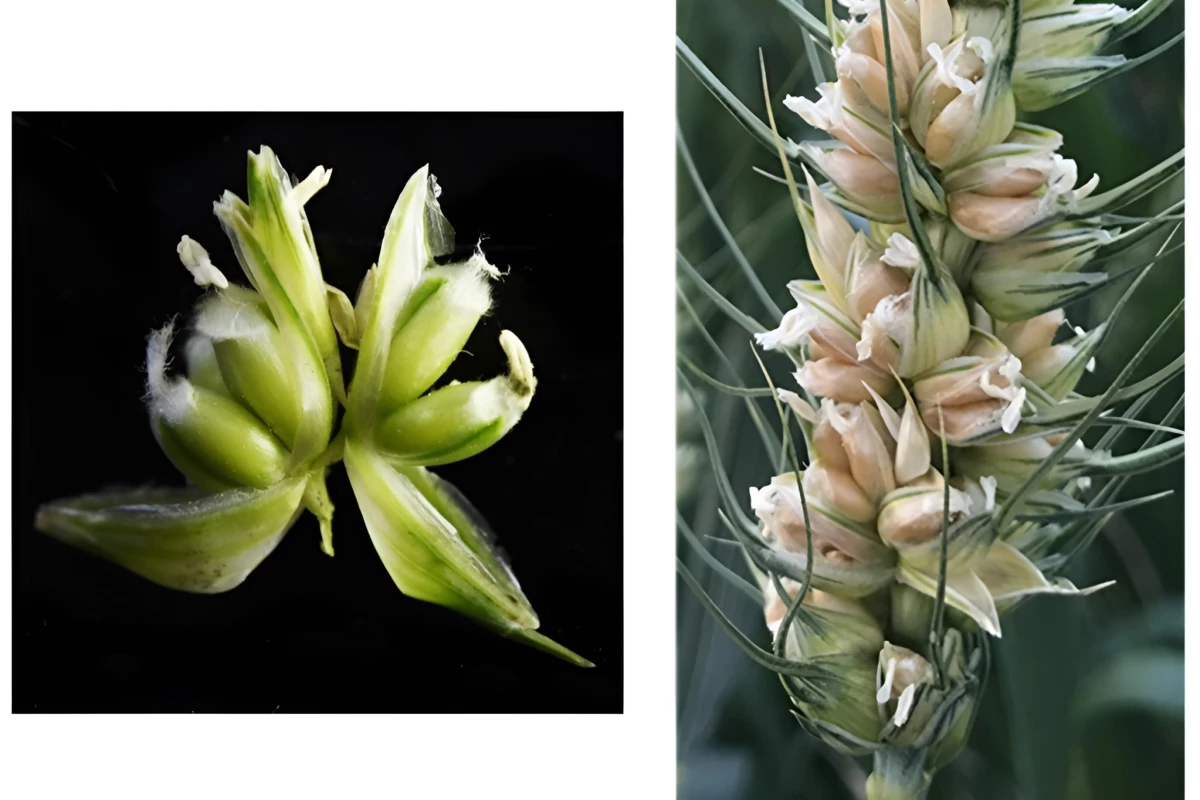Science
Scientists Uncover Genetic Path to Tripling Wheat Grain Yields

Researchers at the University of Maryland have made a significant breakthrough that could potentially triple grain yields from wheat plants without requiring additional land, water, or fertilizer. This advancement centers on a newly identified genetic mechanism that controls the development of wheat grains within the plant’s structure.
In typical wheat plants, each “floret” in the seed head produces a single ovary, resulting in one grain per floret. However, a rare mutant plant known as MOV (multi-ovary) can produce up to three ovaries per floret, thereby increasing the yield significantly. Until now, the genetic factors responsible for this phenomenon remained unclear.
The research team meticulously mapped the DNA of MOV wheat, comparing it to that of standard bread wheat varieties. Their analysis revealed that a previously dormant gene called WUSCHEL-D1 (WUS-D1) is activated in the MOV plants. This gene enhances the development of female flower structures, including pistils and ovaries, thereby facilitating the production of multiple grains.
Assoc. Prof. Vijay Tiwari, co-author of the study, highlighted the implications of this discovery, stating, “Pinpointing the genetic basis of this trait offers a path for breeders to incorporate it into new wheat varieties, potentially increasing the number of grains per spike and overall yield.” The team believes that by utilizing gene editing techniques, they can further enhance this trait to maximize wheat production.
This groundbreaking research has been detailed in a paper published in the prestigious journal Proceedings of the National Academy of Sciences. If successful, these advancements could transform agricultural practices, significantly impacting food security and sustainability efforts worldwide.
The potential for such high-yielding wheat varieties could not only help meet the growing global demand for food but also contribute to more sustainable farming practices by reducing the need for additional resources. As the world faces challenges related to climate change and population growth, innovations like these could play a crucial role in ensuring food supply stability.
In conclusion, the identification of the genetic basis for increased grain yield in wheat plants presents an exciting avenue for breeders and agricultural scientists. The implications for global food production are profound, as this research paves the way for the development of more resilient and productive wheat varieties.
-

 Science2 months ago
Science2 months agoInventor Achieves Breakthrough with 2 Billion FPS Laser Video
-

 Health2 months ago
Health2 months agoCommunity Unites for 7th Annual Into the Light Walk for Mental Health
-

 Top Stories2 months ago
Top Stories2 months agoCharlie Sheen’s New Romance: ‘Glowing’ with Younger Partner
-

 Entertainment2 months ago
Entertainment2 months agoDua Lipa Aces GCSE Spanish, Sparks Super Bowl Buzz with Fans
-

 Health2 months ago
Health2 months agoCurium Group, PeptiDream, and PDRadiopharma Launch Key Cancer Trial
-

 Top Stories2 months ago
Top Stories2 months agoFormer Mozilla CMO Launches AI-Driven Cannabis Cocktail Brand Fast
-

 Entertainment2 months ago
Entertainment2 months agoMother Fights to Reunite with Children After Kidnapping in New Drama
-

 World2 months ago
World2 months agoIsrael Reopens Rafah Crossing After Hostage Remains Returned
-

 Business2 months ago
Business2 months agoTyler Technologies Set to Reveal Q3 Earnings on October 22
-

 World2 months ago
World2 months agoR&B Icon D’Angelo Dies at 51, Leaving Lasting Legacy
-

 Health2 months ago
Health2 months agoNorth Carolina’s Biotech Boom: Billions in New Investments
-

 Entertainment2 months ago
Entertainment2 months agoRed Sox’s Bregman to Become Free Agent; Tigers Commit to Skubal









